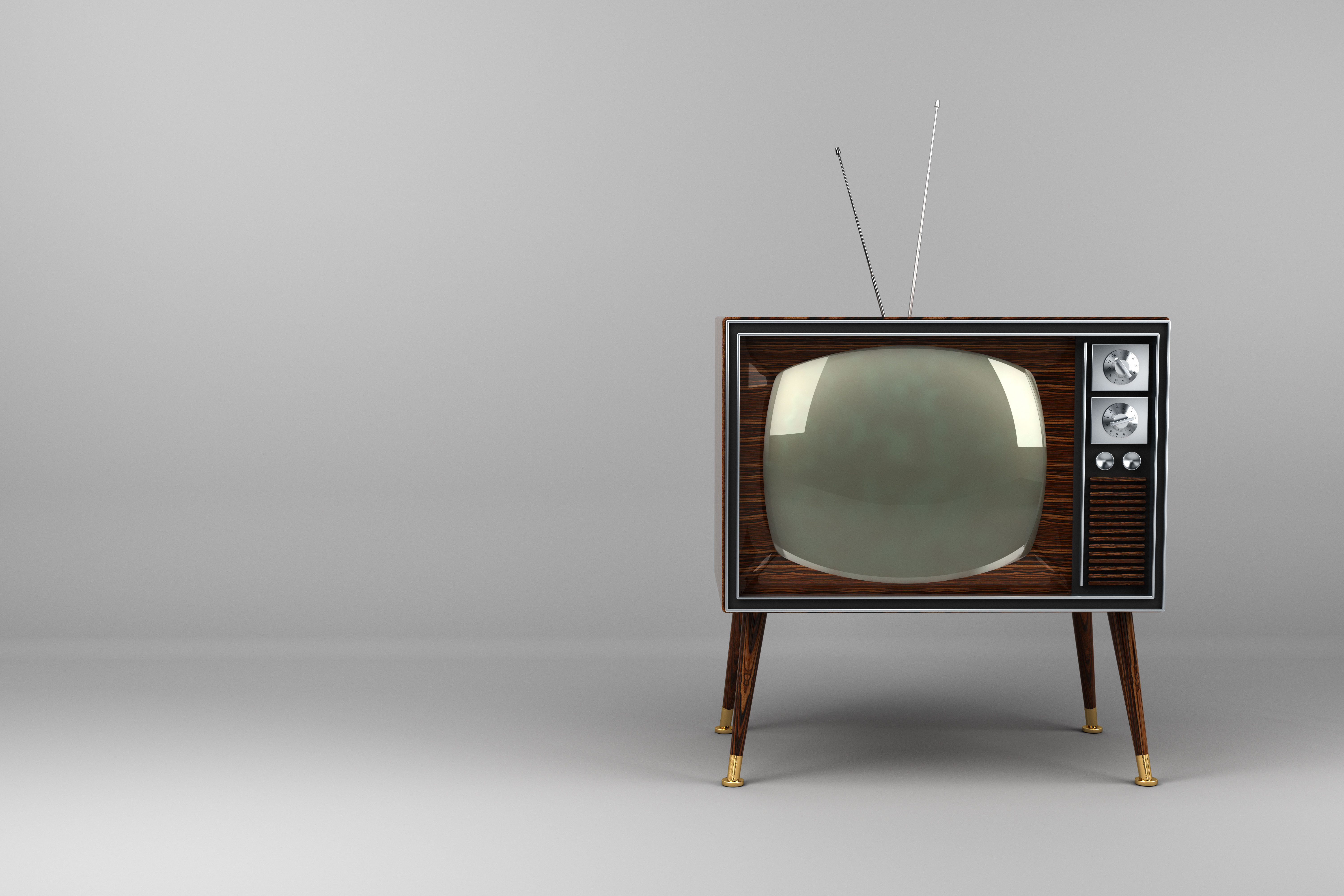Why I miss antenna TV
TV was better when it was simpler


A free daily email with the biggest news stories of the day – and the best features from TheWeek.com
You are now subscribed
Your newsletter sign-up was successful
I recently decided to purchase a television. I don't know what brand or how many inches wide it is, but trust me, you wouldn't be impressed if I told you. It's one of those tiny models with mono sound and a built-in VCR. My daughter can use it to watch tapes of Snow White and Kiki's Delivery Service; I can indulge my quasi-Jacobite passion for the original unaltered Star Wars trilogy (in widescreen!). In a few years the whole family will be able to enjoy E.T. and Raiders of the Lost Ark.
Total price tag for the appliance and these classic films: $12.
But one thing I can't do with our family's fantastic new appliance is watch broadcast television. At least not unless I buy a box that will allow me to convert the digital signal transmitted by every television station in this country to an analogue one that our tube TV can make sense of. After that I have to go online and see what brand of digital antenna works best in our part of the state and watch a series of installation videos on YouTube. After a few hours of troubleshooting, I might be able to take in a Joy of Painting rerun.
The Week
Escape your echo chamber. Get the facts behind the news, plus analysis from multiple perspectives.

Sign up for The Week's Free Newsletters
From our morning news briefing to a weekly Good News Newsletter, get the best of The Week delivered directly to your inbox.
From our morning news briefing to a weekly Good News Newsletter, get the best of The Week delivered directly to your inbox.
I think I'll probably pass.
TV was better when it was simpler. Just turning on the box and flipping up or down, and maybe adjusting the rabbit ears during a storm, was all you had to do. Nobody who wasn't a nerd or a serious AV hobbyist cared about features because there really weren't any. It was there, it looked like crap, and that was it.
Looking back on it now there was something glorious about the messiness of tube television during the antenna era, which for me lasted into the Bush administration. Scanlines, white noise, the SMPTE color bar test pattern that came on late at night, terrible sound: It helped to situate the medium in its proper place as something ephemeral, fit for the transmission of the day's news and sporting events and low-cost children's programming and daytime soap operas filmed with a multi-camera setup.
There was, thank goodness, no such thing as "prestige" television in those days. It was a decidedly lowbrow proletarian pastime. Nobody dreamed of wanting to see this stuff after its initial broadcast; it was more or less pleasant junk, brain-filler, a way to pass an hour or two in the evening; it was bland, amorphous, not especially memorable, but not bad: the entertainment equivalent of tofu.
A free daily email with the biggest news stories of the day – and the best features from TheWeek.com
When there were only three or four channels plus public broadcasting, there was no incentive to cater to the appetites of people interested in watching six straight hours of programming about white people in Texas named Cole or Dylan remodeling McMansions on the one hand or special effects-laden hobbit erotica on the other. There was variety within certain limits — professional and college football, sitcoms about rich and poor people, Teenage Mutant Ninja Turtles and My Little Pony, Tom Brokaw and Peter Jennings — but not so much that people could afford to have taste in television.
If anything, there was something to be said for the socially cohesive power of not being able to choose what you wanted to watch. During its original broadcast Twin Peaks was not something that the circa 1990 equivalent of a Kotaku reader gushed over; it was just the interesting show that happened to be on ABC. Your grandmother probably saw at least one episode. But don't ask her whether she remembers it: That was the point. Nobody did because it was on television. If you wanted to watch something memorable, you went to a movie theater, where it was still possible to watch films made for adults rather than emotionally adolescent comic-book fans. If you really wanted to relive the big game or let your kids watch The Jungle Book again, you practiced the vanished art form of taping.
Nowadays anyone with a cable or satellite television package has access to hundreds of channels and tens of thousands of programs. Golf, video games, popular history, science, right-wing bombast, center-left bluster, center-center preening, the weather, Major League Baseball, food, Catholicism: Every imaginable interest is indulged at all hours of the day, seven days a week, 365 days a year. Does anybody need all this? Does anybody really want it?
It doesn't matter. Old-fashioned crappy TV is never coming back.
Matthew Walther is a national correspondent at The Week. His work has also appeared in First Things, The Spectator of London, The Catholic Herald, National Review, and other publications. He is currently writing a biography of the Rev. Montague Summers. He is also a Robert Novak Journalism Fellow.
